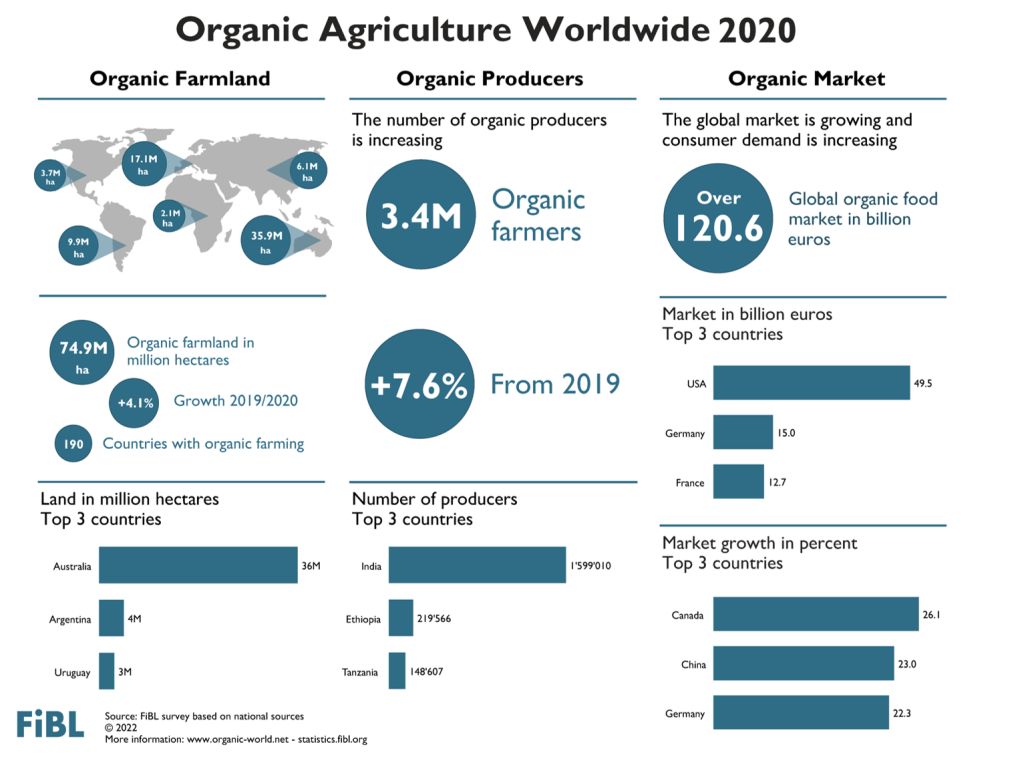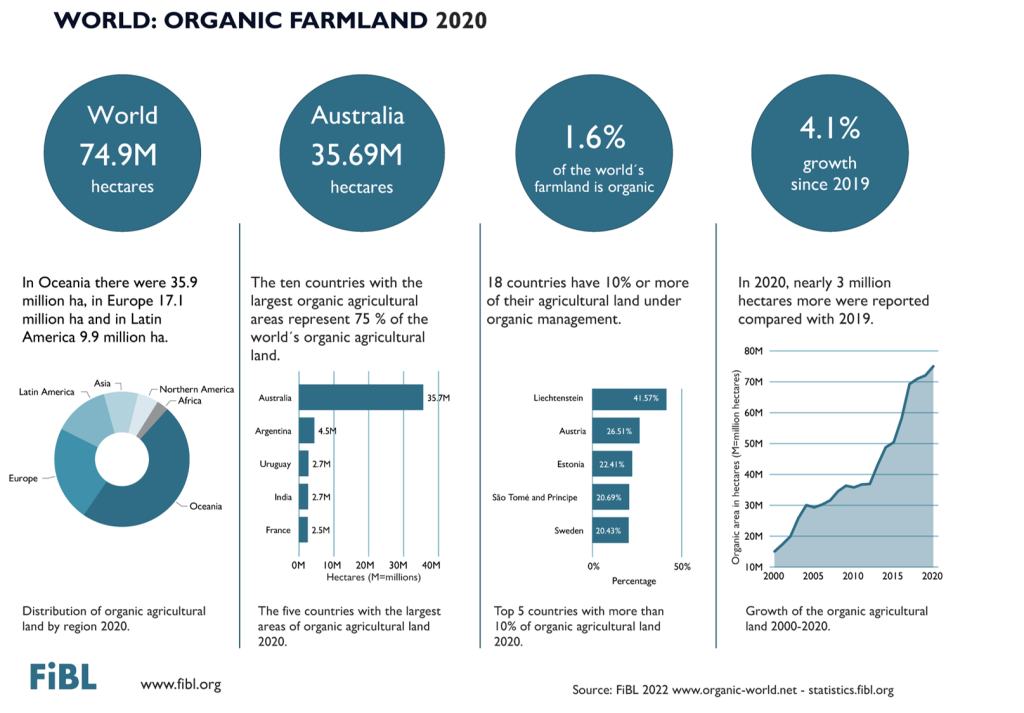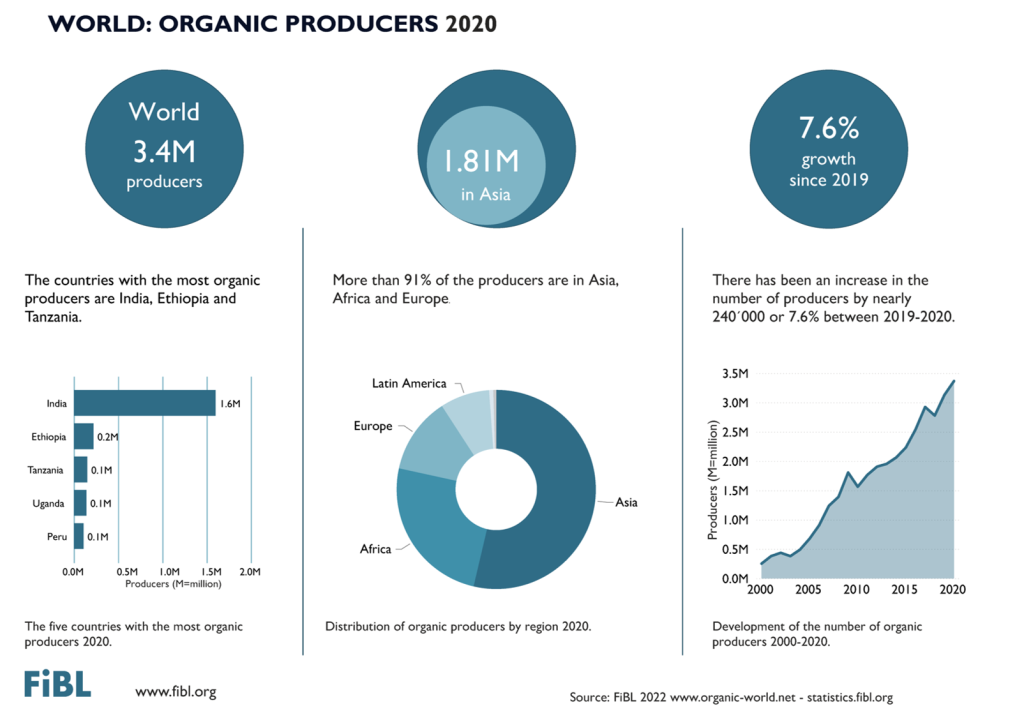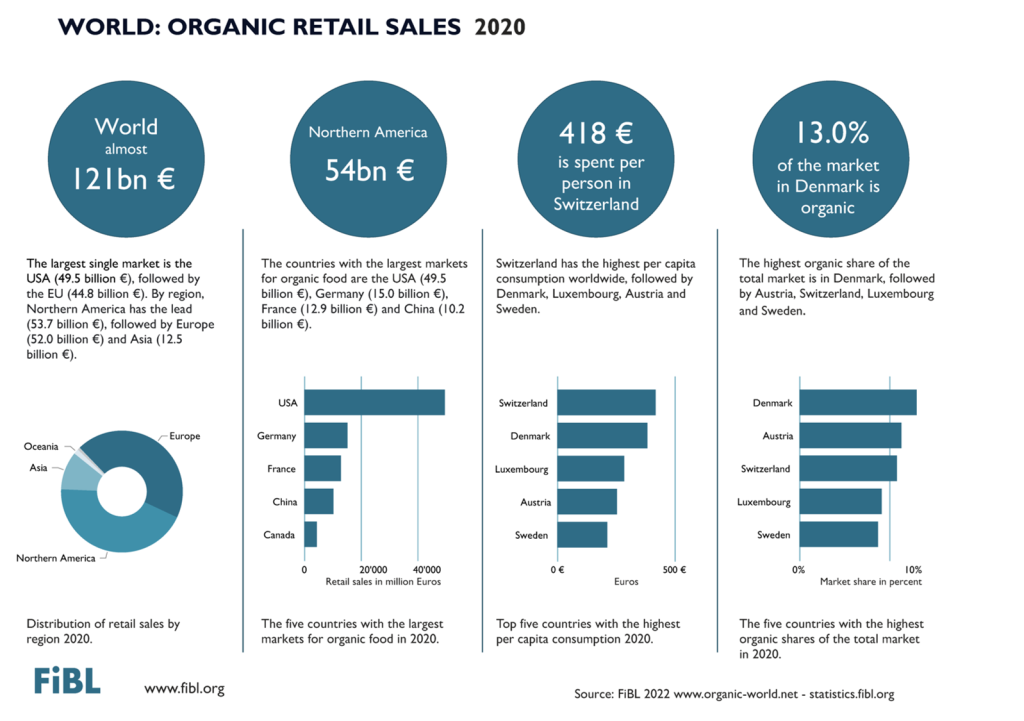In the modern era, have you ever demanded 100% organic products from shopkeepers? Although certainly, we try to buy organic products from the online market such as Blinkit, Reliance Fresh, etc. But the question arises, as to why people are more selective toward the organic product. Are they very useful in the present era of health concerns, nutrition concerns, and agriculture concerns?
Let’s Understand Organic Farming

During the process of crop development, the plant and crop need various inputs such as seeds, fertilizer, pesticide, etc. When these inputs are produced through the farm or natural products or farm waste rather than synthetic fertilizer, chemicals, etc, these farms’ output is called organic product and the technique is called organic farming. As per FAO/WHO Codex Alimentarius Commission, 1999, organic farming is the process of farm production management system in which off-farm input is used in farming, based on regional agro-ecosystem health of biodiversity, biological cycles, and soil biological activity rather than chemicals and synthetic.
ABC: Attribute, Concept, and Benefits
The concept of organic farming was developed by Sir Albert Howard, Rudolf Steiner, and others in the early 1900s who believed that animal manures and biological pests are better farming systems and advocated for their adoption in western countries. In the 1960s, the release of Rachel Carson’s book Silent Spring, which exposed the degree of environmental devastation caused by insecticides, spurred demand for organic food in the 1960s.
The International Federation of Organic Agriculture Movements (IFOAM), an international umbrella organization for organic farming institutions founded in 1972, regulates the standards for organic farming. As per standards, organic farming uses, animals’ manures, biological pests, natural fertilizers, and agro-based by-products. This brings many benefits not just as a natural product but also forward and backward linkages benefits such as crop diversity, promotion of mixed farming, nitrogen fixation, pest control, sustainable farming, weed management, soil conservation, ecological-based farming, etc. In a way, it fulfills the concept of one health where animals, the environment, and people are equally weighed.
Global Scenario And India’s Position

Globally, organic farming accounts for less than 2% of total food sales, but its significance is expanding. Of the total 74.9 million hectares of organic agricultural land globally, Australia has 35.69 million hectares followed by Argentina and Uruguay (Organic farmland 2020). According to the FiBL survey 2021, India holds more than 30% of total organic producers in the world followed by Ethiopia and Tanzania.
The 23rd edition of “The World of Organic Agriculture”, a statistical analysis by FiBL and IFOAM – Organics International, reveals a continuance and growth of organic farming.
About half of the agricultural land in several states of India like Madhya Pradesh, Rajasthan, and Maharashtra (top three) is used for organic farming.
Even the Government of India started initiatives like Mission Organic Value Chain Development for North Eastern Region, Parampragat Krishi Vikas Yojana, Participatory Guarantee System, etc to encourage, support, and market.
Concern, Conflict, And Consequences

- The First issue and challenge are standards, Certification, and adaptability which is prerequisite for the export of organic produce in European countries but still many countries have not adopted them. This prompted India also to adopt the Participatory Guarantee System, for certifying organic products.
- It is a quality assurance initiative that is locally relevant with the active participation of stakeholders including producers/farmers, traders, and consumers in the certification system. APEDA under the National Program for Organic Production of the Government of India used to issue certification in India.
- The second issue is food security as fertilizer-based farming gives better yield per hectare. So organic farming needs to systematize as per food security demand and yield. It needs to make also viable and cost-efficient.
- The third challenge is to make it environmentally sustainable due to climate change and global warming.
- The fourth challenge is shifting the farming tradition from natural/chemical based to organic farming (natural farming, zero-based natural farming).
- The fifth challenge is about forward linkage about value addition, refrigeration, and cold storage infrastructure for better storage and export.
Economics Behind Organic Farming
According to Ecovia Intelligence, a market research firm, the global market for organic food reached $100 billion US in 2018 for the first time (almost 97 billion euros). With 40.6 billion euros, the United States is the largest market, followed by Germany (10.9 billion euros) and France (9.1 billion euros). With 11.5 percent of its overall food market, Denmark had the highest market share for organic products.

In 2020, the Indian organic food industry was estimated to be worth USD 849.5 million by Expert Market Research (EMR). The market is projected to expand at a CAGR of roughly 20.5% between 2021 and 2026, reaching a value of nearly USD 2601 million by that year.
Organic Farming: An Inspiring Story
A multimillion-dollar firm worth highlighting is Two Brothers Organic Farming (TBOF). The Hange Brothers (Satyajit and Ajinkya Hange) left their high-paying corporate jobs to start an organic farming business, which became a profitable endeavor at a time when millions of working professionals were experiencing burnout and fantasizing about a major reset. Their success story prompted IIM-A to invite them to speak to their students; Vogue named them India’s top organic brand, and PM Narendra Modi praised them in Mann Ki Baat.
Vision For More Bio Village And Oscar Award
Organic farming is not a new concept in Indian agriculture though the name per se. Although there are challenges in organic farming it is a need of the hour due to climate change, nutritional demand, one health concept, and environmental protection. In this regard efforts of Sikkim (the first and only organic state) are commendable and learnable. UN FAO while giving the “Oscar award for best policies” to Sikkim remarked as a step toward hunger and poverty remediation.
King Charles III once remarked that he was formerly seen as a “complete idiot” for preferring to farm organically, 40 years ago but that he was later shown to be correct. Hence it is the best time to support, scale, and spread organic farming.
The Author Angad Kumar Sharma is a Ph.D Scholar at the Indian Institute of Technology(IIT), Roorkee.
(Only the media and headline of this content have been reworked by the Metaviews team)









